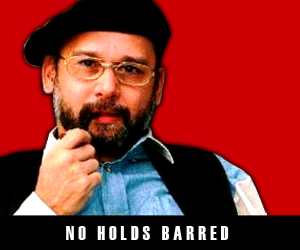How to be a scholar of religions
It is time Malaysia’s education system introduces this concept of studying religions. Even in the study of Islam, Muslims need to look at Islam not as a person of faith would but as a non-Muslim would. And they need to study all religions, not just Islam. And this study must be done based on an outsider’s or reductionist’s point of view.
NO HOLDS BARRED
Raja Petra Kamarudin
Malays in particular do not understand the difference between a religious scholar and a scholar of religions. Even ex-Perlis Mufti, Prof. Madya Dato’ Dr. Mohd Asri Zainul Abidin, criticised me for what he regards as my lack of knowledge regarding Islam. And even Christians think this way so this is not really just a problem with Muslims.
A religious scholar and a scholar of religions are two different things. I am not a religious scholar and do not pretend to be one. I am a scholar of religions (and I use the word scholar not in the context that I am an ulama’ but in the context that I am still a student or still studying).
I am surprised that even people of the status of Dr Asri appear to not understand this.
A religious scholar looks at religion(s) from an insider’s or religionist’s point of view. This means from a position of a devotee/believer or from a position of faith. A scholar of religions looks at religion(s) from an outsider’s or reductionist’s point of view. This means not as a devotee/believer or from a position of faith.
Now, this does not mean that scholars of religion(s) are usually atheists or non-believers. Some could actually be religionists with strong convictions regarding their religion. However, once they attempt to be a scholar of religions, they must change hats.
They must switch off their religionist mode of thinking and turn on the reductionist mode of thinking. They must no longer think as an insider from a position of faith but think as an outsider with no bias or prejudice towards the religion that they believe in.
This is what academic studies are all about. And this is the biggest problem that faces scholars or students of religions because we all have opinions and beliefs. So how to look at religion(s) on the basis that we are an outsider or reductionist when we are actually an insider or religionist?
And that is why one of the essays we need to write as a scholar of religions is regarding the greatest challenge we face as a scholar of religions. And the greatest challenge we face would be that we have to discard our insider views regarding the religion we believe in and look at the issue from an outsider’s perspective.
And this is where many Malays fail. They are so indoctrinated in their faith (meaning Islam) that they find it impossible to think as a non-Muslim and look at religion(s) from an outsider’s perspective.
You study the history or origin of the religions, the doctrine and beliefs of the religions, the practices and rituals of the religions, and so on. You study why people think the way they do regarding the religion they believe in. But you do not pass judgement or make any conclusions regarding the veracity or truthfulness of those beliefs. Truth and falsity are not part of your studies because once you venture into those areas you would no longer be a scholar of religions.
A scholar of religions is not a theologian. Hence we do not discuss matters regarding truth. We only study how religionists think and why they think that way. We do not say whether we think they are right or wrong in believing so.
It is time Malaysia’s education system introduces this concept of studying religions. Even in the study of Islam, Muslims need to look at Islam not as a person of faith would but as a non-Muslim would. And they need to study all religions, not just Islam. And this study must be done based on an outsider’s or reductionist’s point of view.
If you study Islam and think as a Muslim then you are looking at it from a religionist’s perspective and not from a reductionist’s perspective. And this is the greatest challenge you are going to face as a student or scholar of religions, especially for Malays.


